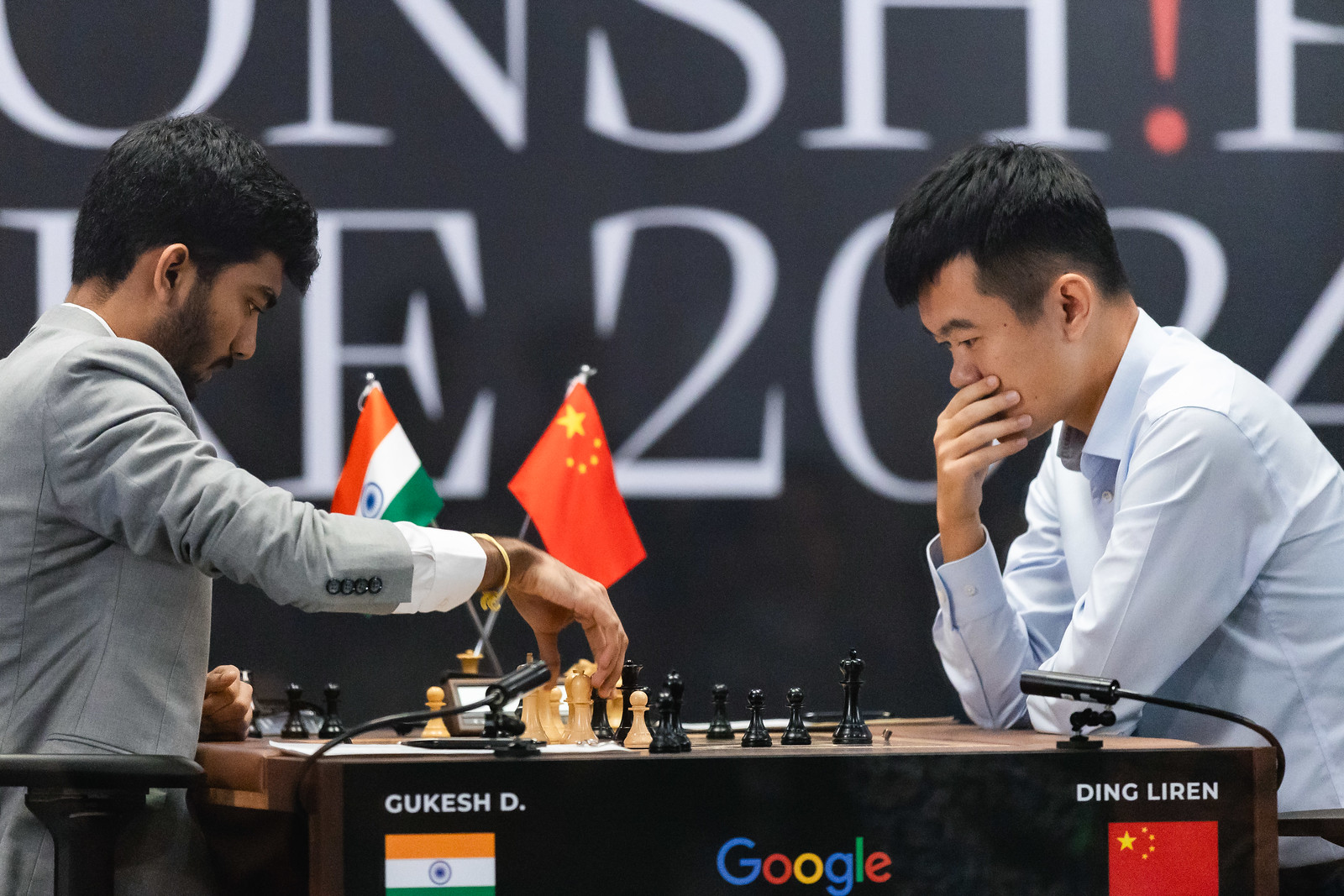The Chess World Championship stands as one of the most demanding and prestigious events in competitive chess. Since its inception 138 years ago, only 17 players have claimed the title, a testament to the extraordinary skill and endurance required. This year, defending champion Ding Liren faces 18-year-old challenger Gukesh Dommaraju in Singapore, with the stakes as high as ever.
A Mental Marathon
The championship is not merely a game of chess; it is a test of mental fortitude over weeks of intense competition. Former champions compare it to monumental feats like climbing Mount Everest. Each move demands unparalleled focus, as a single lapse can alter the outcome of a game.
Vishy Anand, a five-time world champion, described the championship as “our Mount Olympus,” a lifelong dream for those who dedicate themselves to the sport. Malcolm Pein, chess correspondent for The Daily Telegraph, emphasizes the toll:
“You lose weight during a chess tournament of this intensity. The pressure is absolutely enormous.”
Players must not only outthink their opponents but also endure physical strain. Despite minimal movement, the brain’s demands necessitate peak physical condition. Preparing for matches often involves rigorous physical training to maintain concentration for hours at a time.
Historic Rivalries and Unmatched Pressure
The championship’s legacy is shaped by epic rivalries, such as the 1984 duel between Garry Kasparov and Anatoly Karpov. Their contest, lasting five months and 48 games, ended controversially to preserve their health. Kasparov’s comeback from a 5-0 deficit, only to see the match called off, remains legendary.
In today’s era, matches are shorter but no less intense. Ding Liren, for instance, faced significant personal and mental health challenges after his 2023 victory. Speaking ahead of the current tournament, he described himself as an “underdog,” suggesting his struggles could impact his performance.
Inside the Mind of a Champion
Chess players operate in a world of relentless calculations. When an opponent makes a move, players must assess threats, anticipate strategies, and decide on their next steps—all while considering the match’s broader context.
Games can last for hours, with 2021 champion Magnus Carlsen once taking seven hours and 47 minutes to secure a victory. In between games, rest becomes paramount.
“There’s no point tossing and turning,” Anand said, highlighting the importance of deep, restorative sleep to maintain mental clarity.
Training is equally meticulous. Competitors analyze countless game scenarios with the help of computers, train physically to enhance endurance, and collaborate with expert trainers to refine their strategies.
A Path Few Can Follow
Even reaching the championship stage is an extraordinary achievement. Challengers must win the grueling Candidates Tournament, which pits the world’s best against each other. For many, qualifying for the championship is a once-in-a-lifetime opportunity, heightening the pressure.
Losing the title match often leaves lasting scars on players. Pein notes:
“It’s such a blow … It affects people quite badly.”
The Prestige Endures
Despite the rise of faster-paced chess formats like rapid and blitz, the World Championship retains its unique allure. The title is a symbol of mastery that transcends the sport, cementing the champion’s place in history.
For Ding Liren and Gukesh Dommaraju, the stakes couldn’t be higher. As they sit across from each other in Singapore, the world watches, aware that this battle will demand the utmost from both players—mentally, physically, and emotionally.










